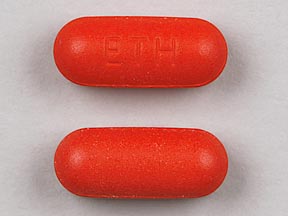Excedrin Tension Headache Interactions
There are 246 drugs known to interact with Excedrin Tension Headache (acetaminophen/caffeine), along with 12 disease interactions, and 6 alcohol/food interactions. Of the total drug interactions, 13 are major, 185 are moderate, and 48 are minor.
- View all 246 medications that may interact with Excedrin Tension Headache
- View Excedrin Tension Headache alcohol/food interactions (6)
- View Excedrin Tension Headache disease interactions (12)
Most frequently checked interactions
View interaction reports for Excedrin Tension Headache (acetaminophen / caffeine) and the medicines listed below.
- acetaminophen
- Adderall (amphetamine / dextroamphetamine)
- albuterol
- Benadryl (diphenhydramine)
- buspirone
- cetirizine
- clonazepam
- cyclobenzaprine
- Excedrin Migraine (acetaminophen / aspirin / caffeine)
- Fioricet (acetaminophen / butalbital / caffeine)
- gabapentin
- hydroxyzine
- ibuprofen
- levothyroxine
- magnesium oxide
- melatonin
- meloxicam
- omeprazole
- pantoprazole
- prednisone
- propranolol
- sertraline
- tizanidine
- tramadol
- trazodone
- Tylenol (acetaminophen)
- Vitamin B12 (cyanocobalamin)
- Vitamin C (ascorbic acid)
- Vitamin D3 (cholecalciferol)
- Zyrtec (cetirizine)
Excedrin Tension Headache alcohol/food interactions
There are 6 alcohol/food interactions with Excedrin Tension Headache (acetaminophen / caffeine).
Excedrin Tension Headache disease interactions
There are 12 disease interactions with Excedrin Tension Headache (acetaminophen / caffeine) which include:
- alcoholism
- liver disease
- cardiac disease
- hypertension
- psychiatric disorders
- PUD
- PKU
- cardiotoxicity
- liver disease
- renal dysfunction
- seizure disorders
- GERD
More about Excedrin Tension Headache (acetaminophen / caffeine)
- Excedrin Tension Headache consumer information
- Compare alternatives
- Pricing & coupons
- Reviews (3)
- Drug images
- Side effects
- Dosage information
- During pregnancy
- Drug class: analgesic combinations
Related treatment guides
Drug Interaction Classification
| Highly clinically significant. Avoid combinations; the risk of the interaction outweighs the benefit. | |
| Moderately clinically significant. Usually avoid combinations; use it only under special circumstances. | |
| Minimally clinically significant. Minimize risk; assess risk and consider an alternative drug, take steps to circumvent the interaction risk and/or institute a monitoring plan. | |
| No interaction information available. |
Further information
Always consult your healthcare provider to ensure the information displayed on this page applies to your personal circumstances.


